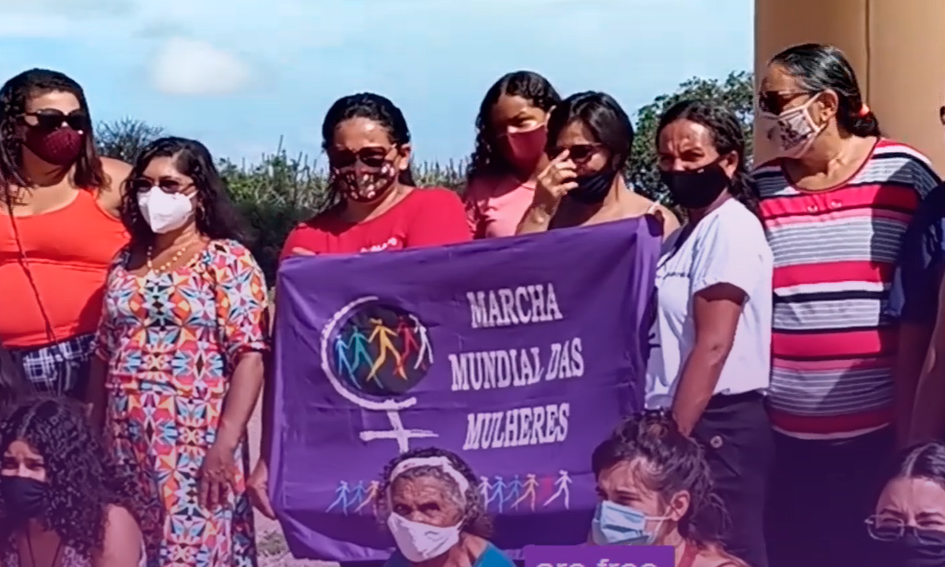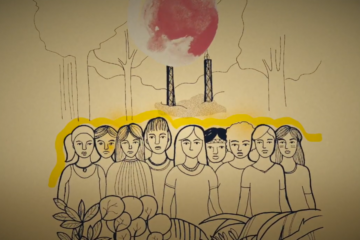In several parts of the world, women spearhead the resistance against transnational corporations. Megaprojects advance toward their territories and impose devastating impacts on their lives and communities. The companies are always interested in the same thing: maximizing profits. In practice, this means exploiting people and nature, removing people from their territories, threatening life in the communities, and increasing violence in women’s everyday lives.
In Paraíba and Rio Grande do Norte, two states in Northeast Brazil, women of the World March of Women and the March for Women’s Lives denounce big power companies that implement wind power plants in their territories and communities. These women question how a source of energy sold as “clean energy” can, at the same time, put people’s health and safety at risk, grab territories, and change the ways of life of local communities.
The video “Wind Parks and Women’s Resistance in Brazil” was produced to understand, from the perspective of the voices of women who experience this reality, the impacts of wind power generation produced by big companies. The stories they share make us reflect on how necessary it is to deeply change the energy model. It is not simply about changing the sources of energy, while the consumption of extractive activities of digital capitalism continues to expand. The model of reproduction and consumption must change, putting the sustainability of life on center stage.
The video features Tatiana Muniz, Roselita Albuquerque, Francisca Silva, and Rayane Silva and was filmed during an exchange promoted by SOF Sempreviva Feminist Organization [Sempreviva Organização Feminista – SOF], the March 8 Feminist Center [Centro Feminista 8 de Março], and the World March of Women in Brazil, in February 2022.




